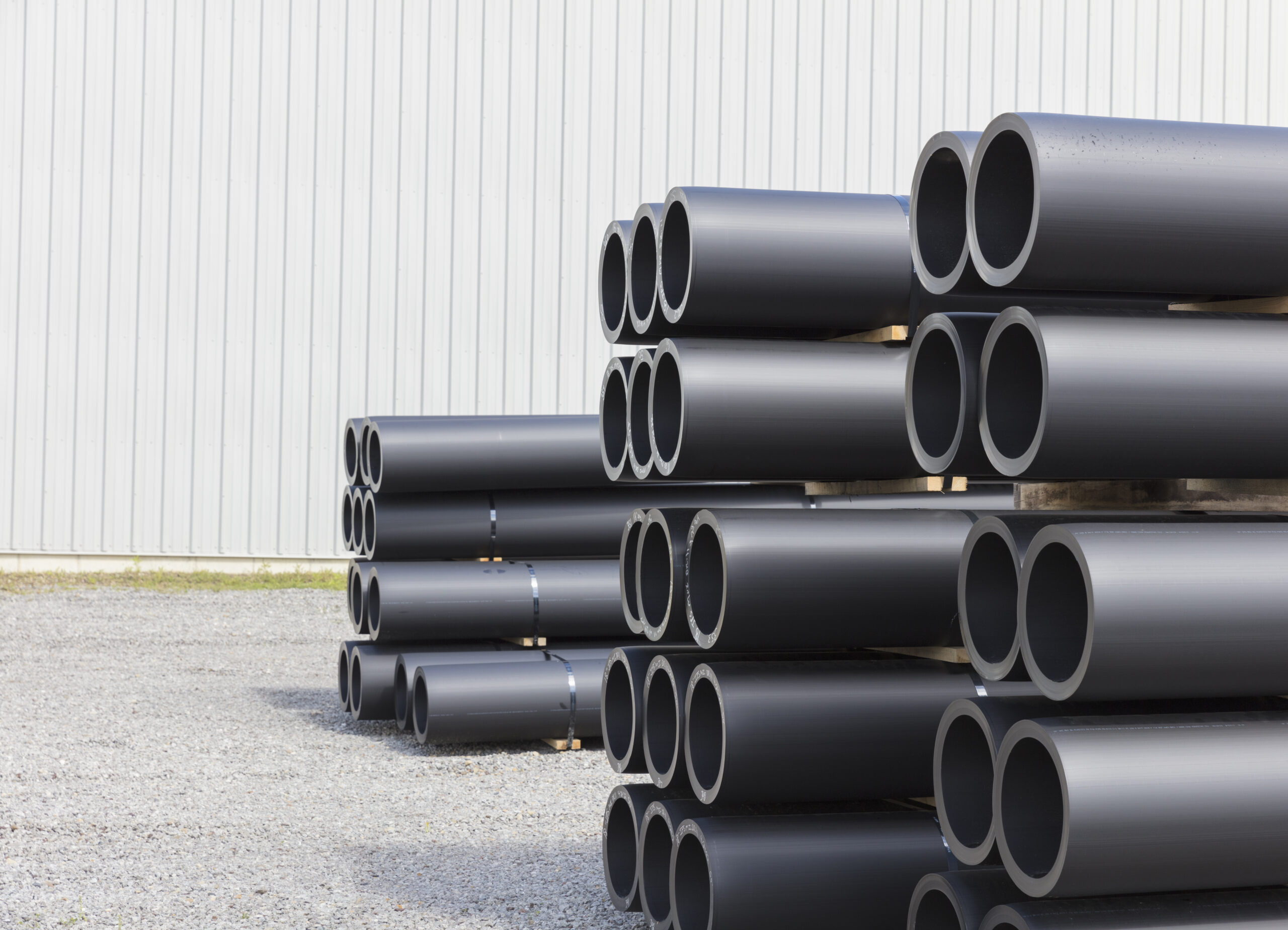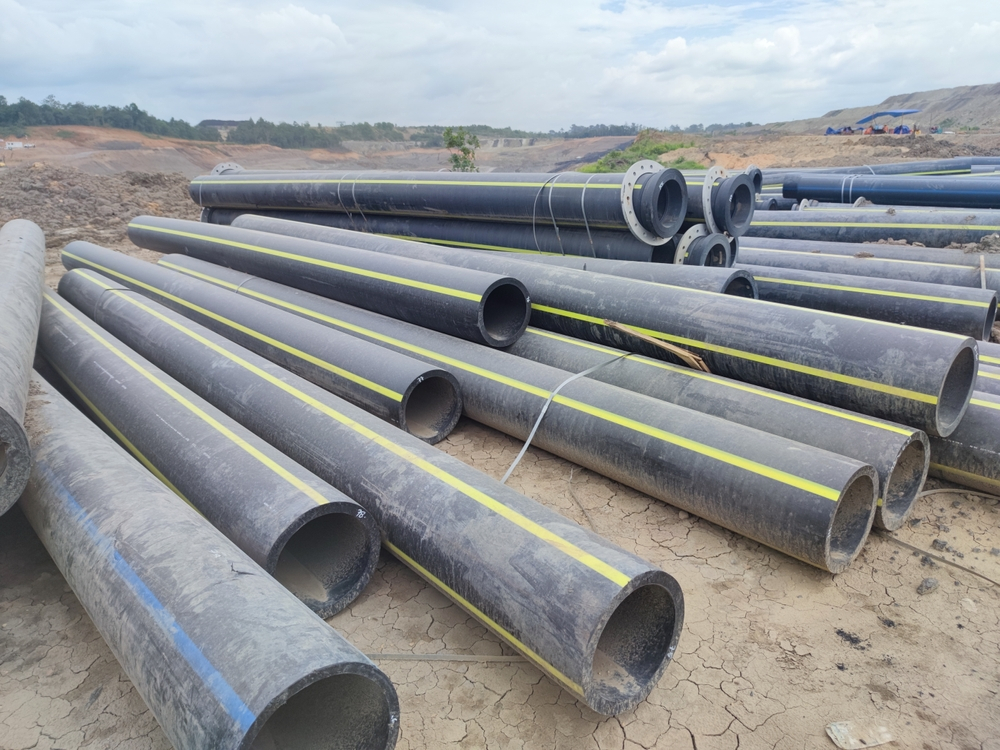The Role of Pipe Manufacturing Midland TX in Supporting Industry Growth
Wiki Article
Comprehending the Key Perks of HDPE Pipe for Water and Wastewater Administration
Using HDPE pipe in water and wastewater monitoring presents countless advantages that warrant consideration. Its remarkable durability and long life-span make it a favored selection for numerous jobs. Additionally, the material's resistance to deterioration and chemical damage enhances its dependability in numerous environments. Nevertheless, the advantages extend beyond simply longevity and resistance. Exploring its cost-effectiveness and ecological impact discloses a lot more engaging reasons for its prevalent adoption in contemporary frameworkOutstanding Resilience and Long Life

HDPE pipeline sticks out for its remarkable sturdiness and longevity, making it a recommended option in water administration systems. Constructed from high-density polyethylene, these pipelines can hold up against substantial stress and anxiety, guaranteeing dependable efficiency with time. Their durable nature enables them to withstand severe environmental problems, consisting of temperature variations and soil movements, which can create various other materials to fall short.
The life expectancy of HDPE pipelines commonly exceeds 50 years, offering an economical remedy for municipalities and industries alike. Additionally, the product's lightweight properties streamline installation, minimizing labor expenses and durations. This resilience lessens the demand for constant repairs or replacements, further improving its financial allure.
In water monitoring applications, the reliability of HDPE pipelines suggests fewer disruptions and enhanced service connection, making them important to sustainable facilities growth. The mix of longevity and durability solidifies HDPE's function as a keystone in reliable water monitoring remedies.

Resistance to Deterioration and Chemical Damages
While lots of products catch deterioration and chemical damage gradually, HDPE pipes display impressive resistance, making them optimal for numerous water monitoring applications. This strength comes from the molecular structure of high-density polyethylene, which is naturally non-reactive and does not wear away like steels or weaken from exposure to severe chemicals. As an outcome, HDPE is extremely reliable in environments with hostile substances, such as wastewater systems that may contain acids, bases, and organic solvents.
Additionally, HDPE pipes can endure ecological elements such as soil level of acidity and saline conditions, better improving their suitability for diverse applications (hdpe pipe in stock Midland TX). Their capability to maintain architectural integrity in time minimizes the risk of leakages and failures, which is crucial in guaranteeing the safety and security and integrity of water distribution and wastewater monitoring systems. The resistance to corrosion and chemical damage considerably contributes to the total efficiency and longevity of HDPE piping remedies.
Cost-Effectiveness and Financial Benefits
When thinking about the financial effects of water administration systems, the cost-effectiveness of HDPE pipes comes to be obvious. These pipes offer lower installation and upkeep expenses compared to standard materials like steel or concrete. Their lightweight nature streamlines transportation and setup, resulting in reduced labor expenditures. Furthermore, HDPE pipelines display a lengthy lifespan, usually surpassing 50 years, which converts to fewer substitutes and long-term financial savings.The resistance of HDPE to rust and chemical damages minimizes the demand for expensive repairs and substitutes. The pipes also sustain efficient water circulation, minimizing energy prices linked with pumping systems. By minimizing leaks and water loss, HDPE pipelines contribute to considerable financial advantages for towns and markets alike. Overall, the first financial investment in HDPE piping can produce significant economic returns over the life expectancy of the water administration system, making it a prudent selection for sustainable infrastructure development.
Ecological Sustainability and Lowered Effect

Convenience and Adaptability in Setup
As a result of their unique residential or commercial properties, HDPE pipes supply amazing convenience and flexibility in setup, making them ideal for a wide variety of applications. Their light-weight nature enables simpler handling and transport, reducing labor expenses and setup time. HDPE pipelines can be bent and formed to fit various terrains and job needs, which is especially beneficial in challenging atmospheres.In addition, their resistance to deterioration and chemical damage enables installment in varied setups without the demand for specialized protective coatings. The ability to fuse joints creates a continuous, leak-free system, enhancing the overall stability and dependability of the setup. HDPE's adaptability also accommodates ground movement, reducing the risk of damages in locations vulnerable to changing dirt. On the whole, these features make HDPE pipelines not just functional yet likewise a favored option for water and wastewater management systems.
Frequently Asked Questions
How Does HDPE Pipeline Contrast to PVC in Water Monitoring Applications?
HDPE pipeline provides exceptional flexibility, resistance to corrosion, and resilience compared to PVC. Its lighter weight facilitates the original source less complicated installment, while its lengthy life-span minimizes replacement costs, making HDPE a favored choice in water management applications.What Is the Life Expectancy of HDPE Pipeline Under Common Problems?
Under normal conditions, HDPE pipelines can have a life expectancy ranging from 50 to 100 years. Their durability and resistance to deterioration add to their long-lasting efficiency in different applications, making them a reliable selection for facilities.Are HDPE Pipes Recyclable After Their Life Span?
Yes, HDPE pipes are recyclable after their service life. Pipe Supplier American Plastics Midland. They can be processed and repurposed right into new items, significantly lowering ecological impact and advertising sustainability within the industry, making them an environmentally friendly selection for piping servicesWhat Is the Installment Process for HDPE Water Lines?
The installation process for HDPE pipelines involves site prep work, trenching, pipe combination or mechanical joining, backfilling, and pressure screening. Correct methods ensure a long lasting and reliable system for transferring water and wastewater successfully.Can HDPE Pipes Be Utilized for Both Safe And Clean and Non-Potable Water Systems?
Yes, HDPE pipes can be made use of for both potable and non-potable water systems. Their convenience, sturdiness, and resistance to corrosion make them appropriate for numerous applications, ensuring safe and effective transportation of water in various contexts.Report this wiki page